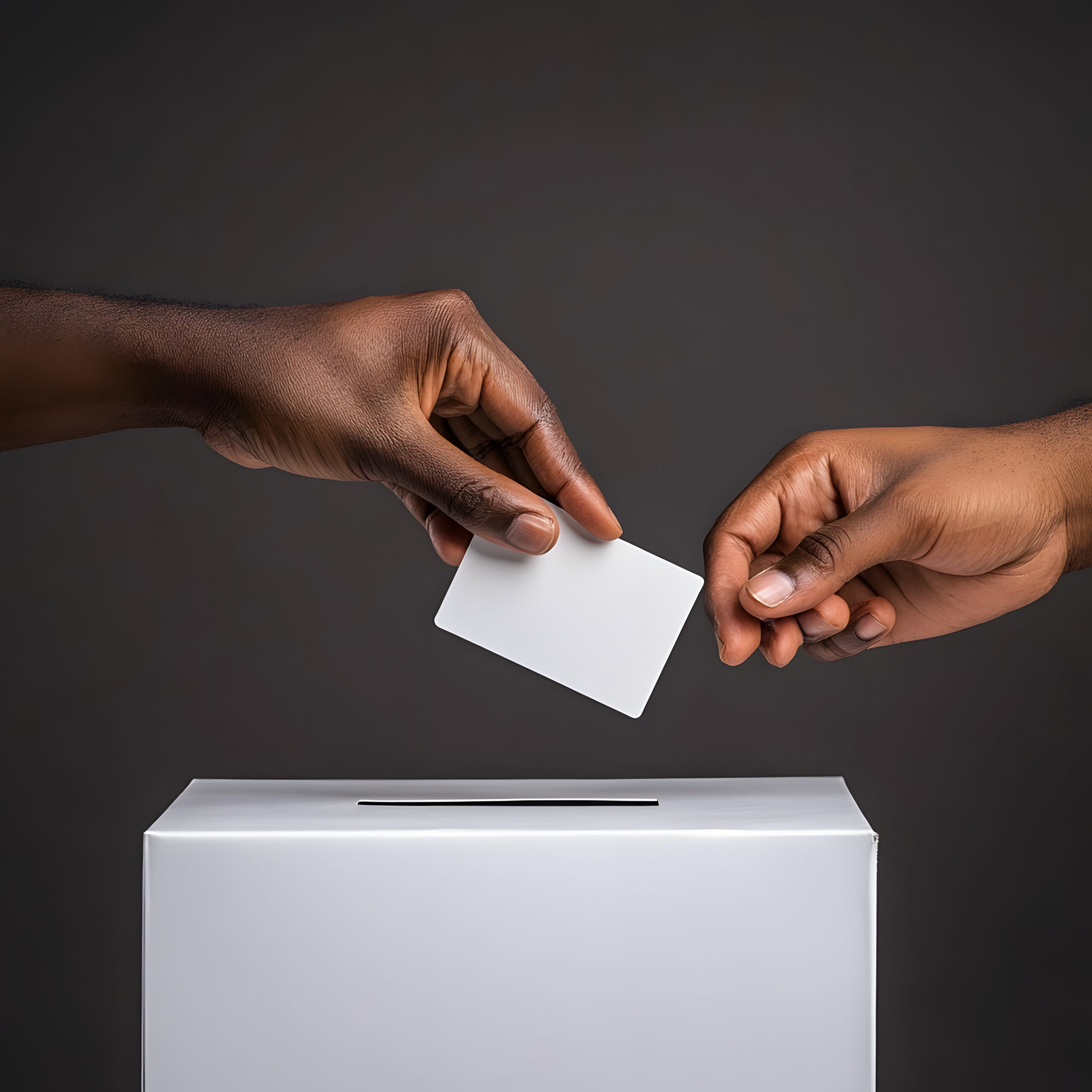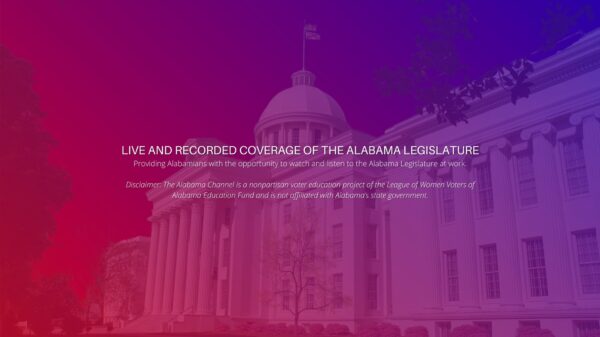A group of Southern attorneys and advocates drew attention to ongoing legal debates surrounding voting rights during a Tuesday panel hosted by the League of Women Voters.
The event, entitled “The Fight for the Ballot Box: Voting Rights in the Deep South,” was hosted as a part of LWV’s “Good Trouble Tuesdays” virtual panel series.
Guest panelists representing legal and legislative voting rights advocacy groups fielded questions from moderator Stephanie Butler and audience members regarding the history and future of voting rights laws in the South.
Panel participants consisted of: ACLU of Alabama Executive Director JaTaune Bosby Gilchrist, Legal Defense Fund State Voting Rights Act Policy Fellow Imani Brooks, Campaign Legal Center Voting Rights Program Senior Director Danielle Lang and Southern Poverty Law Center Senior Staff Attorney Ajay Saini.
The event was introduced by LWV of Alabama President Kim Bailey and LWV of Georgia President Nicola Hines.
“I’m sure you’ve all heard, ‘as the South goes, so goes the nation.’ Nowhere is that more evident than in the ongoing struggle for voting rights in Alabama and Georgia,” Bailey said. “These two states sit at the heart of both the history and the future of American democracy. From the courage of the foot soldiers in Selma to the hard-won victories of the Civil Rights Movement, Alabama and Georgia helped shape the Voting Rights Act and transform the nation.”
“Yet today, they remain central battlegrounds in the effort to protect and expand access to the ballot. Across these states, voters still face shifting roles, aggressive redistricting battles, limited polling locations and new administrative barriers that disproportionately impact rural communities, voters of color and low-income families,” Bailey added.
Issues addressed included the potential impacts of the U.S. Supreme Court case Louisiana v. Callais on redistricting battles throughout the South and changes in voter roll maintenance.
Opening the discussion with a description of the significance of voting rights history to contemporary legal debates, Gilchrist described the relevance of Reconstruction-era amendments and Jim Crow laws as essential to understanding the current state of legal battles surrounding voting rights.
“What we learned from this history of Reconstruction, which is really the vision and the dream to the nadir of Jim Crow, in which we are now in another nadir in this time, is the ability for us to see progress through the courts,” she said.
Gilchrist emphasized the importance of the 13th, 14th and 15th Amendments in the passage of the Civil Rights and Voting Rights Acts and their continued relevance to Supreme Court cases related to voting rights.
She went on to point to the impacts of Supreme Court cases out of Alabama, such as Shelby v. Holder and Allen v. Milligan, in shaping how race is considered in implementing voting rights regulations.
“When we see the arc of civil rights and within our communities, we have to look at what the Supreme Court was able to help define,” she said. “Now, as we are in this particular century, and we are seeing the Shelby decision and the Milligan decision and now Callais, it really gives the scope of what the Voting Rights Act did, and what the effort now is to roll back the ability to enfranchise a people.”
Louisiana v. Callais, which the Supreme Court is currently hearing, involves the constitutionality of Louisiana’s 2022 congressional map.
The map maintained only one majority Black district among the state’s six congressional districts, despite Louisiana having a Black population that makes up roughly one third of citizens in the state.
Black plaintiffs, in a previous suit, argued the map violated Section 2 of the Voting Rights Act, which prohibits election practices that result in the denial or abridgement of the right to vote based on race. The U.S. District Court for the Middle District of Louisiana and later the Fifth Court of Appeals ordered Louisiana to draw a new congressional map with an additional Black majority district.
The map was redrawn in January 2024, after which a group of non-Black voters filed a federal district court complaint challenging the map as an instance of racial gerrymandering.
Louisiana and the individual litigants have argued against the use of Section 2 in creating minority advantage districts, which they claim violates the Reconstruction amendments.
LDF, meanwhile, has argued before the court that the map fairly recognizes Black voters, satisfying both the requirements of the Voting Rights Act and the 14th Amendment.
The facts of Callais closely mirror Alabama’s own Supreme Court redistricting case, Allen v. Milligan, in which the court ordered Alabama to draw an additional Black majority district in order to more closely reflect the racial makeup of the state.
“This is not just about Louisiana’s specific map,” Brooks said. “It’s about whether communities of color across the country have meaningful representation, and that’s really at the heart of what we’re trying to do at LDF, and with our peers here, is ensure meaningful representation across the South.”
Discussing the potential impacts of a ruling that limits the application of Section 2, Saini pointed to proposals to redistrict in Louisiana and Alabama, should the court’s ruling narrow the application of Section 2.
“There are a couple of states that are gearing up already to potentially redraw their maps,” Saini remarked. “Louisiana has shifted its election schedule to anticipate a decision from the Supreme Court and then ultimately redistrict in a way that would, you know, without the Voting Rights Act as a potential restriction on how they go about redistricting. I understand that Alabama might be considering a similar effort.”
The Supreme Court’s ruling in Callais is expected to be released in the Summer of 2026, during the campaign season for Alabama’s 2026 elections.
Legislation, prefiled for the Alabama Legislature’s 2026 session, by state Senator Garlan Gudger, R-Cullman, would delay primaries for legislative and congressional districts changed by the Legislature or a judge “at a time too late to be accommodated during the normal primary election schedule.”
The legislation would push 2026 primaries for such districts, currently scheduled for May 19, to late August, allowing the state to ensure its districts are in line with court rulings on race’s role in determining legislative and congressional districts.
The arguing of Callais also comes as Alabama was ordered to redraw two state Senate districts that Trump-appointed U.S. District Judge Anna Manasco ruled were in violation of Section 2.
A new map for Senate Districts 25 and 26, located in the Montgomery area, was selected on Monday by the same team that redrew Alabama’s congressional districts in response to the Milligan verdict in 2023.
If the court provides a ruling that limits or ends the implementation of Section 2, and Gudger’s legislation is passed, redistricting efforts next summer could restructure Alabama’s Black majority legislative districts mandated by federal courts.
Panelists also predicted that new limitations on Section 2’s implementation would hinder minority voters’ political representation and further limit the scope of remaining Voting Rights Act protections.
Gilchrist highlighted policies implemented following the Supreme Court’s 2013 verdict in Shelby v. Holder, which struck down Section 5 of the Voting Rights Act’s preclearance requirement for districts with a history of racial discrimination to make changes to voting policies—a decision she described as opening the door for policies that disenfranchise minority voters.
“Missouri is the show me state. Alabama is the make me state. So, anything that Alabama has done historically has been by way of a federal provision or intervention, and that is what preclearance did,” Gilchrist said.
“At that time in Shelby County, they said, ‘we no longer need this,’” she continued. “We are in, what the court named, ‘a post-racial society.’ And after that, what we saw is an onslaught of voter suppression tactics.”
Discussing the impact of the Shelby verdict, panel members criticized closures of polling places following the case, including in rural Black Belt counties, as well as a number of election policies that Alabama Republicans have argued help ensure election integrity, which panelists described as hindering voter access.
Lang and Gilchrist decried Alabama’s implementation of photo voter ID requirements after Shelby, and subsequent pushes to expand voter ID regulations, as policies that increased barriers for rural and minority citizens attempting to exercise their right to vote.
“There’s nothing wrong with asking voters to verify their identity, and we always have, and I think we always will do that,” Lang said.
She described sending notices to a voter’s listed address, cross-referencing voter signatures and verifying voter information against the Social Security database as effective forms of voter ID that are less likely to disenfranchise voters.
“What becomes a problem is when you try to layer on more and more documentation requirements that just make voting into a bureaucratic nightmare, especially for some of our least—for those who are kind of most marginalized,” she continued.
Lang condemned federal lawmakers and the Trump administration’s push to require that voters provide documents proving their citizenship to register to vote, saying more stringent voter ID laws would make Americans without easy access to their proof of citizenship less likely to register and utilize their right to vote.
In April, the SAVE Act, a piece of legislation that would require voters to provide proof of their citizenship to register to vote in federal elections, passed the U.S. House with the full support of Alabama’s Republican representatives.
Lang also drew attention to a 2024 voter roll purge that Alabama Secretary of State Wes Allen claimed was responsible for removing noncitizens from the state’s voter rolls by utilizing DMV data, which in fact removed naturalized citizens who were noncitizens at the time they received their driver’s license.
Allen’s decision to withdraw the state from the Electronic Registration Information Center, a nonprofit organization aimed at assisting states in voter roll maintenance, also received criticism from the panel.
In place of ERIC, Allen established the Alabama Voter Integrity Database, a state-run voter roll maintenance program that cross-checks the state’s voter rolls with registration information obtained from other states through memorandums of understanding.
Saini described AVID as a “far less reliable” system for voter list maintenance, criticizing limitations of the system’s information-sharing agreements with 10 additional states.
“ERIC is by far the most accurate way to actually effectively remove large numbers of voters who’ve moved, which everybody agrees should be a goal,” Lang said.
“[AVID is] a very centralized system, all of which is run through Alabama. It is, you know, doesn’t have the same kinds of safeguards, doesn’t have the same kind of auditing and third-party oversight, transparency involved,” Saini said.
“From what I understand, the AVID system also doesn’t even incorporate all of the relevant information that would be necessary to run a robust voter list maintenance check,” he continued. “I’ve seen suggestions that they don’t actually incorporate information about Social Security numbers and driver’s license information, which makes matching incredibly difficult to do if you don’t have that information.”
Panelists concluded their discussion by urging attendees to educate themselves on voting rights regulations and advocate for the implementation of policies such as state voting rights acts.
State voting rights act legislation was introduced in Alabama last session, seeking to reintroduce preclearance requirements and expand protections against minority voter dilution.
“This conversation sets the stage for Alabama’s upcoming legislative session,” Bailey said.
“There are several prefiled bills that we are watching closely, that we will be educating and advocating about,” she added. “These voting rights bills that are coming up are critically important, so let’s get ready and do the work.”


















































